Every successful defence of refusing a breathalyzer test charge begins with a clear plan. With over two decades of experience, we’ve developed a proven four-step case assessment process that guides you from uncertainty to resolution with confidence and clarity.
Impaired Driving Defence Centre
DUI Defence Services -
Failure or Refusal to Provide a Breath Sample
Schedule a FREE assessmentUnder section 320.15 of the Criminal Code, it is a criminal offence in Canada to fail or refuse to provide a breath, blood, urine, or saliva sample when lawfully demanded by a police officer. This charge often surprises people, especially when they were never actually driving or had no alcohol in their system. What matters is whether the police had legal grounds to make the demand and whether you clearly and deliberately refused. While refusing a breathalyzer test charge is often portrayed as indefensible, the reality is very different: many refusal charges are beatable.
Since Canada’s 2018 overhaul of impaired driving laws under Bill C-46, police officers have two separate legal pathways to demand a roadside test. The first is Mandatory Alcohol Screening (MAS), which allows an officer to demand a breath sample from any lawfully stopped driver, without needing any signs of impairment. The second is a demand based on reasonable suspicion that the driver has alcohol or drugs in their body which is a very low legal threshold that does not require signs of actual impairment. Importantly, a roadside test is not always required. If the officer has reasonable and probable grounds to believe that a person is impaired by alcohol or drugs, they can arrest the driver immediately. Then they may demand either a formal breath test on an Approved Instrument at the station or a Drug Recognition Evaluation (DRE). A breathalyzer test can still lead to a criminal charge for not giving breath sample, even if you are polite or simply confused about the law.
Many refusal charges arise when people mistakenly believe they are asserting their rights by refusing to provide a sample until they speak with a lawyer. Unfortunately, this is not permitted at the roadside. You have no right to consult counsel before providing a sample into an Approved Screening Device (ASD) or participating in Standard Field Sobriety Tests (SFSTs). You do have the right to speak to a DUI lawyer before providing a breath sample at the police station or undergoing a Drug Recognition Evaluation (DRE), but refusing a roadside test, even politely or based on legal confusion, can still lead to criminal charges. Police often appear friendly during these interactions, but a simple statement like “I want to talk to my lawyer first” can be treated as a refusal by the police, but not necessarily at trial.
Since the introduction of MAS in 2018, these cases have surged in number. However, they are often highly defensible. At AveryLaw, we provide expert impaired driving refusal defence in Ontario by examining every detail of your case, including whether the officer had proper grounds, whether the demand was made correctly, whether your words or actions truly amounted to a refusal, and whether your Charter rights were violated. Defences may include ambiguous conduct, unclear wording, late compliance that should have been accepted, improper timing, or lack of proper “last chance” warnings from police. We also explore whether the officer’s demand itself was valid, especially in roadside environments where protocols are often ignored.
If you are convicted of refusing to provide a sample, the penalties mirror those for impaired operation. This includes a mandatory minimum fine of $2000, the same fine as if you blew double the limit, a mandatory one-year driving prohibition, enrolment in Ontario’s Back on Track program, a mandatory ignition interlock, and a criminal record. These consequences can affect your employment, your insurance, and your ability to travel internationally, including a potential travel ban to the United States.
A charge does not mean a conviction. These cases can often be defended successfully or resolved without a criminal record. Our firm has an exceptional record defending refusal to provide a breath sample cases across Ontario. If you’re facing this charge, reach out today for a complimentary case assessment and let us explain how we can help.
OUR LEGAL ASSESSMENT PROCESS
1
COMPLIMENTARY ASSESSMENT
This is a full hour-long consultation, not a sales pitch. We take the time to understand you, not just the charge. We’ll talk through what happened, how you're doing, what the court process will look like, the potential outcomes, defence costs, and your most pressing questions. You’ll leave the call with a clear roadmap and the confidence of knowing what happens next.
2
Intake and Set-Dates
Once you’ve hired us, we take over the administrative burden. We’ll obtain all police disclosure and appear at every set-date court appearance on your behalf, so you don’t have to miss work or worry about procedure. Behind the scenes, we’re already reviewing your file and preparing for the real fight ahead.
3
Analysis and Pre-Trials
Our entire DUI lawyer team meets to analyze the disclosure, identify viable defences, and research the legal and factual issues in your case. We consult with you before engaging the Crown, either to set a trial date or negotiate a resolution that protects your future. You’re kept in the loop, but we carry the legal weight for you.
4
Hearing Date
This is where it all comes together—either in trial or in resolution. Mr. Avery will be in court beside you, fully prepared to protect your rights and secure the best possible outcome. Whether we’re arguing for an acquittal or negotiating final terms, your case is in the hands of an experienced advocate who knows how to win.
OUR GOOGLE 5 STAR REVIEWS
Powered by







Chris Avery and his team at Avery Law are outstanding. From the start, Chris was straightforward, knowledgeable, and easy to talk to. He... Read more
Mike
20/06/2025






We had an amazing experience working with Chris. From start to finish, they were professional, knowledgeable, and truly dedicated to our case. They... Read more
MS
10/04/2025






Chris Avery and the legal team was highly responsive and non-judgmental, taking the time to explain the process clearly and in easy to... Read more
DR
01/03/2025






I had the privilege of working with Christopher and Erica, and I can confidently say they are a class above the rest. I... Read more
Ccy
02/03/2025






Chris Avery and his legal team recently represented me in defending a legal matter against me. I am extremely happy with the result... Read more
BD
10/10/2023






Mr. Avery whent above and beyond for me and was able to have my charges withdrawn. I highly recommend him to anyone looking... Read more
BH
04/02/2023










